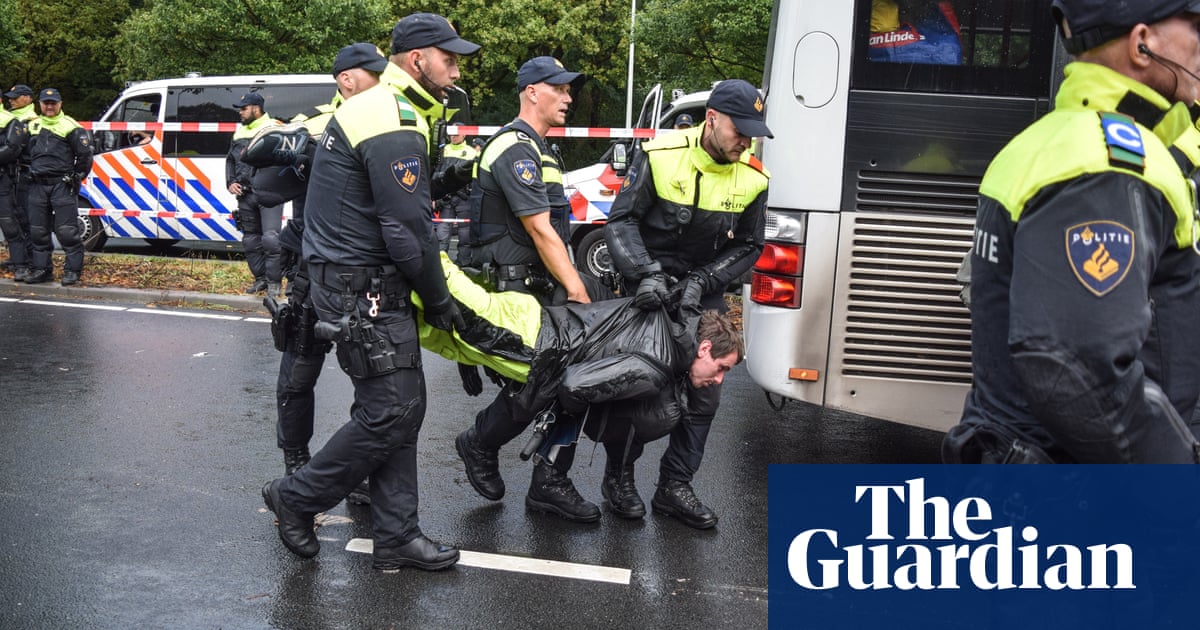The UK has led the way in the crackdown, experts say, with judges recently refusing an appeal against multi-year sentences for climate activists who blocked a motorway bridge in east London. The three-year jail terms for Marcus Decker and Morgan Trowland earlier this year are thought to be the longest handed out by a British judge for non-violent protest.
Michel Forst, the UN rapporteur on environmental defenders since June last year, described the situation in the UK as “terrifying”. He added that other countries were “looking at the UK examples with a view to passing similar laws in their own countries, which will have a devastating effect for Europe”.
He added: “I’m sure that there is European cooperation among the police forces against these kinds of activities. My concern is that when [governments] are calling these people eco-terrorists, or are using new forms of vilifications and defamation … it has a huge impact on how the population may perceive them and the cause for which these people are fighting. It is a huge concern for me.”



Very concerning. But it shows that governments are triggered and hit at a vulnerable spot by these protests. They know that it is very hard for them to please the activists and pass sufficient climate legislation in the short term, so it is apparent that protests will continue and even increase. Also they don’t want to appear “weak” by giving in (which is completely stupid of course). So with these harsh sentences, they show us that they are afraid and want to stop these protests before they get too large
The glueing on streets, throwing stuff on glass covered paintings and so forth are mainly meant as recruitment tools. The media loves to cover that, as they can be displayed as annoying protestors, but they also do not seriously disrupt the status quo. The terrorist comparisons then turn some more moderate activists more radical, which these organizations then can recruite.
However they then target fossil fuel infrastructure. Just Stop Oil did shut down oil refineries, there have been protests shuting down German lignite plants, in Australia they managed to disrupt a coal port for week and there are many other examples. This hurts fossil fuel companies in the bank account, which is their weak point. So they absolutly hate them.
these are hardly recruitment tools. Nonviolent protests have been targeting lignite mines long before and had more supporters than people glueing themselves to the street.
It is the other way around in terms of “radicalization” although thos term is hardly fitting as demanding the government to uphold its own laws and international commitments can hardly be radical. Meanwhile the governments radicalized extremely, both in their language and now in their often criminal infringement of the protestors rights.